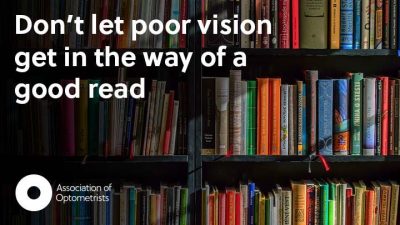Visual stress and reading problems

Visual stress, issues with reading speed or accuracy
If either you or a relative has difficulty reading or seeing words on the page, then this may be caused by visual stress or an uncorrected vision problem. If you have not had a recent eye examination then this is definitely the first place to start.
Some of the symptoms include unstable co-ordination of the eyes and the inability to focus on images or words that are close. This combination can produce eyestrain, headaches and visual distortion. Some people describe text moving around which is one reason why some people have problems reading words, especially black words on a white background.
Our optometrists can recognise visual stress during a thorough eye examination and help to treat the symptoms. Because these symptoms can be caused by the way the eye muscles work or because of a need for glasses we would definitely suggest a full eye examination is the first place to start before exploring other less common reasons.
Coloured Overlays or spectacle lenses
Coloured overlays or specifically coloured lenses in spectacles can sometimes help the symptoms of visual stress. Often a white background, whether that be a whiteboard, or a piece of paper can make it difficult to read the words written on it. The colour which provides comfort and a significant improvement in reading accuracy and speed cannot be anticipated but needs to be identified in a way that removes personal preference, Bridle opticians offer an assessment service to determine whether this will be of help.
ReadEZ vision screening
The NHS do not provide any screening to determine the usefulness of coloured overlays or spectacle lenses, Bridle opticians can provide this service though. We need to start with recent full eye examination carried out by us, and then we move on to the assessment for overlays.
Regular eye tests
Even though tinted lenses may help the condition, the effectiveness of the colour of the tint may change over time and so regular eye tests are essential.
Regulatory information from The College of Optometrists
We are the professional body for optometry in the UK and we publish the guidance used by optometrists called the Guidance for Professional Practice (GfPP). In sections A162 to A170 we set our recommendations on specific learning difficulties, including dyslexia. It is not within the core competence of an optometrist to make a diagnosis of specific learning difficulty such as dyslexia. All optometrists must recognise and work within the limits of their professional competence, and if necessary, refer patients to the relevant professional such as an educational psychologist or their school SENCO lead in the first instance should a learning difficulty be suspected.
Some optometrists do provide a service to assess and recommend precision tinted (“coloured”) lenses (or filters) that can treat a condition called visual stress, which affects some people, including those with specific learning difficulties; however, the evidence on this intervention is inconclusive. The use of coloured lenses in an optometric context is intended to alleviate visual stress, not dyslexia. Indeed, most people with dyslexia do not have visual stress or a binocular vision abnormality. While some optometrists who practise in this area report that some patients find these interventions help to alleviate symptoms of visual stress or improve reading speed, they should not claim that these interventions treat specific learning difficulties.
We are clear that optometrists should only provide or recommend examinations, treatments, drugs or optical devices if these are evidence-based, clinically justified, and in the best interests of the patient. Likewise, patients should be told if a treatment or investigation is not supported by evidence or established practice (GfPP section D8 and General Optical Council Standards of Practice 7.6 & 16.6), so clients or their parents are able to make an informed decision as to whether they wish to choose to proceed.
Call us
If you or your child has unexplained problems reading please contact us to speak to one of our optometrists.
